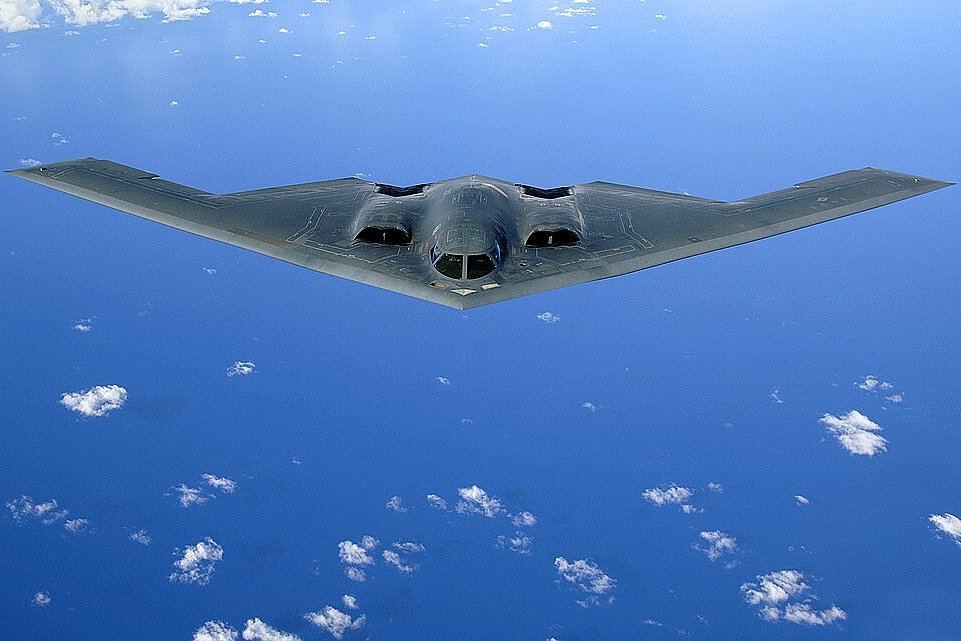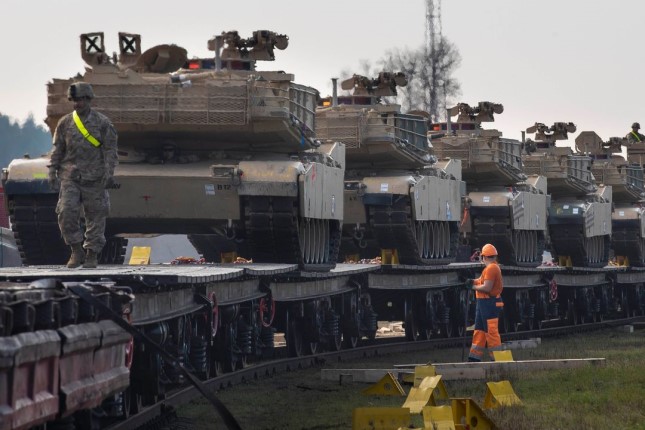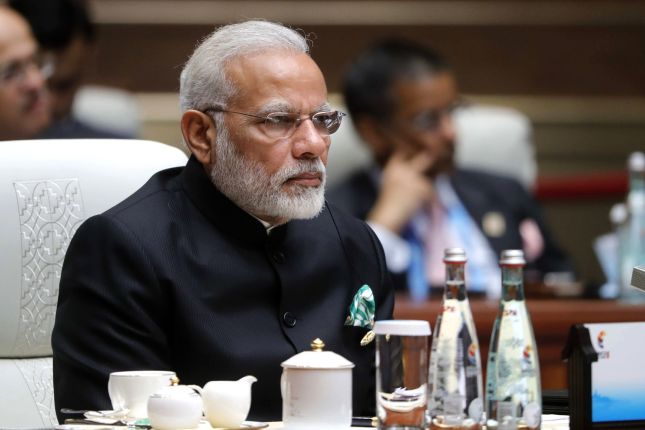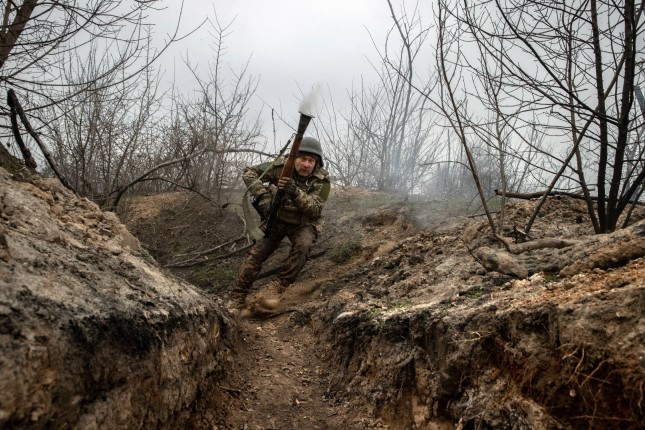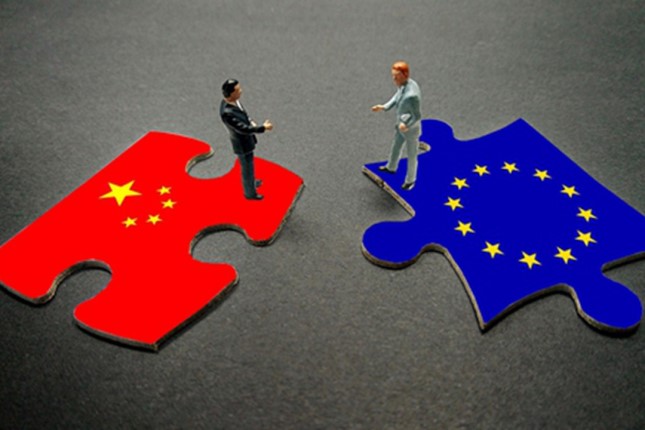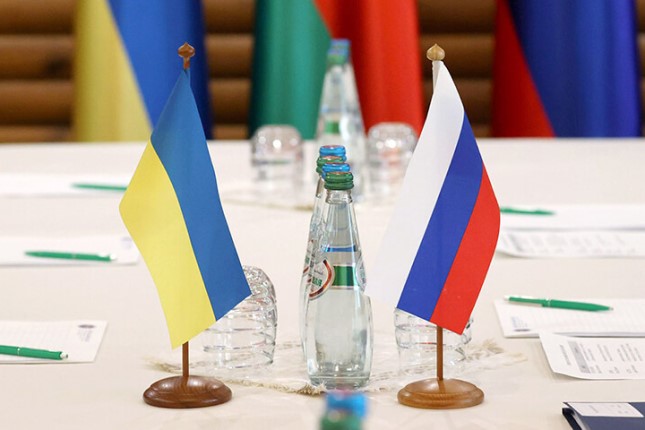The Trump White House has launched an attack on the Islamic Republic of Iran – a country that already is the victim of an unprovoked aggression by Israel.
B-2 bombers have hit three major nuclear facilities; batteries of Tomahawk missiles also have been fired.
Potential consequences are catastrophic. This action is in violation of the explicit Constitutional provision that Congress alone has the power to declare war. That fundamental fact gets barely mentioned in whatever public discourse has taken place.
The termination point of this reckless path to war will find the U.S. despised in the world — whatever the immediate military outcome. At home, the nation will demonstrate once again that it has become incapable of shame, and that whatever self-respect survives will be in the form of that confected adulation that egoists apply to themselves.
A pariah despised abroad and a sullen, autocratic nation look to be America’s ignominious destiny.
By what route did the U.S. get here?
Americans harbor an intense hostility toward the Islamic Republic of Iran that is an emotional response to the humiliation they felt from the occupation of the United States embassy in Tehran in November 1979. That searing experience left a scar on the American psyche. It has irritated it constantly ever since.
So, the long smoldering impulse to destroy the mullahs’ regime is driven by an animus that goes beyond realpolitik calculations or the relentless pressures from Israel and its American lobby. That emotion added to and was itself intensified by the 9/11 trauma.
I offer the proposition that the 9/11 phenomenon qualitatively changed American attitudes toward the world and themselves. It generated powerful emotions – of vulnerability, of free-floating anxiety, of vengeance – that have swirled just beneath the surface of America’s thinking about the United States’ place in the world, its objectives, and – not least – the means that it is prepared to use to reach them.
Hunting Whales
Since there is no actual Moby Dick out there for the U.S. to pursue, Americans have fashioned a virtual game of acting out the hunt, the encounter, the retribution. The U.S. thereby has embraced the post-9/11 trauma rather than exorcised it. That is the “war-on-terror.” That war is about America – it no longer is about them. It is America’s Passion Play.
The psychodrama unspools in America’s own mind and imagination.
Ahab destroyed himself, destroyed his crew, destroyed his ship. He sacrificed all in the quest – a quest for the unattainable.
The United States is sacrificing its principles of liberty, its political integrity, the trust that is the bedrock of its democracy, its standing in the world as the “best hope of mankind,” and its capacity to feel for others – including its fellow citizens. America’s Moby Dick has migrated and transmuted itself. It now is lodged in its innermost being.
There, it spawns fictive offspring – foremost, the Iranian mullahs and Vladimir Putin. Now, China too. But the phantasmagoric ‘Putin’ is but the projection of America’s own existential dread. The spectral persona who haunts America’s minds, “Putin” has no objective existence.
“Putin” – and the diabolical mullahs — are the creation of America’s troubled national psyche. The U.S. has transposed onto them the whole maelstrom of turbid emotions it had imparted to Osama bin-Laden, and then the Islamic State. ‘Putin’, like depictions of Satan, is the dark star amidst a host of demonic furies: Iran, Assad, the Taliban, Hezbullah, Houthis, Hamas, M-13.
To be rid of America’s transmuted Moby Dick the U.S. must kill part of America’s tainted being – a form of psycho-political chemotherapy. Otherwise, America’s national soul will wither away just as Ahab was sucked into the ocean depths entangled in the very ropes he had fashioned to ensnare Moby Dick.
Thirty-five years ago when the Cold War’s negotiated end, followed by disintegration of the Soviet Union, ushered in the “unipolar moment,” the U.S. seemingly saw confirmation of the belief that there was a teleology of history at work that moves in parallel with the American project.
That article of faith encouraged the United States in the audacious project to globalize an American-directed Western hegemony. The record indicates that for a decade the execution of that project entailed relatively little direct conflict or coercion – the big exception being the first Gulf War against Saddam Hussein.
A smaller exception being the Kosovo intervention.
The American political class, and the populous at large, favored the country’s ambitious activities abroad in a mood of quiet self-satisfaction.
Today, while the global project remains intact for elites and the vast majority of the public, the U.S. does witness dramatic changes in methods and national mood that emerged post 9/11. Emotions play a more prominent role in what the U.S. aims for, what it does and how it does it – be they aggressiveness, righteousness, or the impulse to denounce, scapegoat and punish others who obstruct the U.S.
The U.S. picks fights with whomever it perceive as hostile. America resorts to violent force as the first resort rather than the last. It engages in acts of gross inhumanity – directly or as accomplices.
The stress on 9/11 does not preclude the facilitating influences of other societal trends. Over the past few decades, it is evident that the country’s social fabric has loosened, that spreading nihilism has opened a playground for narcissists and self-seekers of all stripes, that the software of America’s liberal democracy is corrupted, that moral sensibilities are weakening – all expressions of a coarsened society and a calloused conscience.
In short, the ethic of involvement in and responsibility for public affairs – at home and abroad – has thinned dramatically.
Is the inference that 30 or 40 years ago, the U.S. as a people and America’s leaders could not have countenanced or participated in an open genocide in Gaza; that the U.S. would not invade other, non-threatening countries cavalierly without even a ritual bow to principle or international law, that the U.S. would not have snatched migrant children from their parents and stuffed them into holding-pens owned by privateers?
That the step toward ultimate disaster taken today would have been ruled out of order?
Or, domestically, that the Supreme Court majority would not treat the Constitution as a speed bump on the way to reaching whatever predetermined conclusion they had set themselves, that successive Presidential admissions would not have ignored or perverted stipulations of the 1st and 4th Amendments?
We can only speculate. My personal assessment is that the U.S. could not have done so.
Source: Consortium News.
